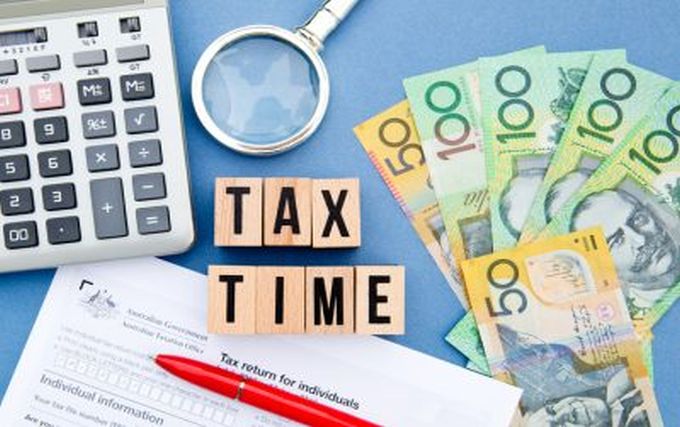With tax time just around the corner it is time to look at investment property tax deductions. When buying an investment property make sure you seek advice and know what investment property tax deductions you can claim.
Put simply investment property tax deductions entail 1) management and maintenance costs and 2) borrowing expenses.
Management and maintenance costs, including interest on loans, can generally be claimed immediately (that is, deducted against your current year’s income). Borrowing expenses, investment property depreciation and capital works spending, however, can be deducted over a number of years.
According to the Australian Taxation Office (ATO) website you can claim a deduction for expenses relating to your investment property for the period your property is rented or is available for rent. Available for rent means:
- the property is advertised, giving it broad exposure to potential tenants
- considering all the circumstances, tenants are reasonably likely to rent the property.
1) Management and Maintenance Costs
Property Management
As an owner you need to know that there are several investment property tax deductions available to you. Management expenses such as: insurance, advertising for new tenants, lawn care and gardening are just some examples. Property agents fees, water charges, body corporate fees and charges, and council rates are also deductible. So too are cleaning and pest control. Ensure to keep good records when it comes to these expenses.
Repairs and Maintenance
You can only claim investment property tax deductions relating to repairs and maintenance for your investment property in the year that you pay for them.
Replacing a window due to storm damage or hiring a qualified technician to repair appliances that have broken down or been damaged are all covered under investment property tax deductions. Other items may include repairing a fence or roof in the event of a falling tree.
The ATO define maintenance as “work that is done to prevent deterioration or fix existing deterioration”. Investment property tax deductions for maintenance include painting and plumbing and any other work that is done to keep the property presentable and liveable for tenants.
Legal Fees
Legal fees can relate to the management of your property. Fees related to evicting a non paying tenant are an example of a legal fee that can be deductible. Expenses incurred if you have to take that tenant to court and defend a damages claim if a third party has suffered an injury on your investment property is also an example of an investment property tax deduction.
Depreciation on Investment Property
Position One Property have discussed depreciation in the past. Depreciation is a reduction in the value of an asset over time, due in particular, to wear and tear. An air conditioner is an example of a depreciating asset. Capital works deductions, on the other hand, relate to work done to produce income. This includes buildings, extensions and structural improvements. A quantity surveyor will help you deduct this work over a longer period than depreciating assets.
-
If you are seeking to claim depreciation on your investment property make sure you have a depreciation(s) schedule for your accountant including building write-down as well as fixtures and fittings (white goods, heating/cooling systems, carpets, etc). If your investment property is under 40 years old (or had a major renovations in the last 40 years), deductions are available. Seek advice from your accountant or a quantity surveyor if you are uncertain. Engage the services of a quantity surveyor if you have recently purchased a property. They will help you prepare the appropriate schedules for your investment property. This is also tax deductible, including the fee for your depreciation schedule.
Negative Gearing
In addition to management and ongoing expenses it is important to remember deductions related to negative gearing. Your accountant will process your deductible expenses against your rental income and your other income streams. Deductible expenses are those that exceed the income earned from your property. In some cases you may be able to claim a deduction for the full amount of the rental expenses.
2) Borrowing Expenses
Investment Loan Deductions & Interest
When it comes to the initial purchase of your investment property there are several investment property tax deductions available. Mortgage broker and loan establishment fees are the initial costs you can claim. Stamp duty charged on the mortgage, title search fees charged by the lender, and valuation fees for loan approval are also deductible items. Along with costs for preparing and filing documents on the loan, and lender’s mortgage insurance. When your total borrowing expenses are over a certain amount (check current limits with the ATO), your accountant will spread this deduction over five years or the term of the loan, whichever is less. You can also claim interest charged on the loan for the purchase of a rental property. Don’t overlook these expenses when putting your tax return together.
Rental Property Tax Deductions can be hard to keep track of. So, you may like to use our handy checklist to keep track of them! CLICK HERE: Rental Property Tax Deductions Checklist.
Investment property tax deductions…what should I do next?
If you own an investment property it is always a good idea to seek external advice. A qualified accountant or financial planner will be able to assist.
*Disclaimer: The information in this article is of a general nature only and should not be relied upon as advice. You should seek professional advice for your particular circumstances before entering into any transaction.

